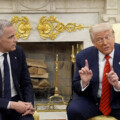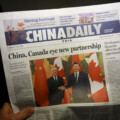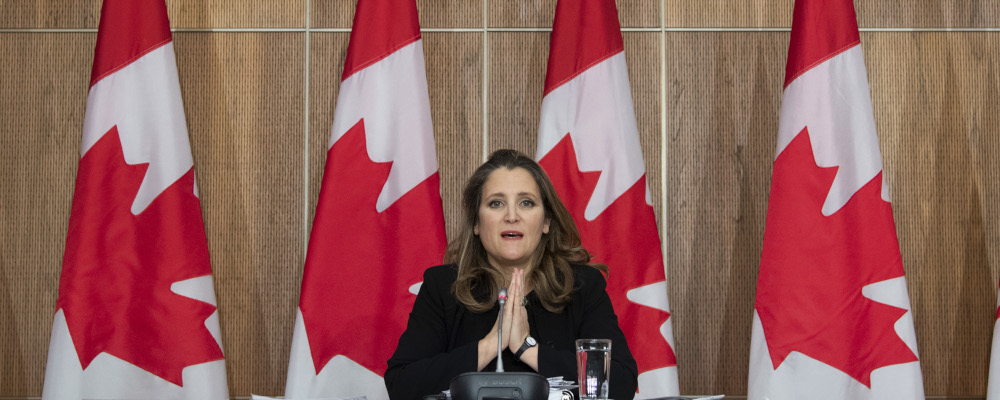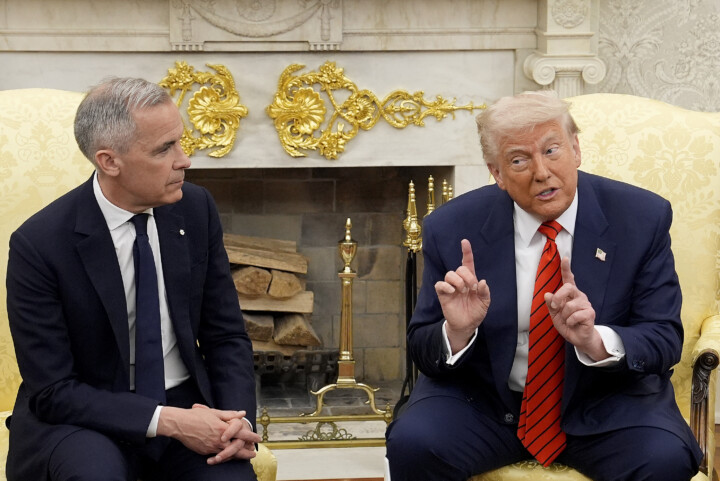The world of political ideas moves similar to the way Ernest Hemingway described going bankrupt in his novel, The Sun Also Rises: “gradually, then suddenly.”
It wasn’t that long ago that British Prime Minister Tony Blair was talking about “third way” Labourism, U.S. President Bill Clinton was declaring the “era of big government was over,” and Canadian Finance Minister Paul Martin was balancing the federal budget “come hell or high water.”
The end of the twentieth century and the start of our current one seemed to mark the ascendancy of a new, limited government orthodoxy that prioritized low taxes and balanced budgets and was wary of the economic and fiscal costs of large welfare states. That the chief proponents of this nascent consensus were often center-left politicians spoke to its fecundity.
It didn’t happen overnight of course. It took years — even decades — for conservative intellectuals such as economists Friedrich Hayek and Milton Friedman and social scientists Irving Kristol and Nathan Glazer to chip away at the “mixed economy” model (including large-scale entitlement programs, high marginal tax rates, and a “visible hand” in market outcomes) that was popularized in the immediate post-WWII era.
These intellectual activities, including conferences, policy papers, journal articles, and so on, mostly occurred outside the mainstream of western politics. They weren’t quite fringe ideas, but they didn’t have much purchase in the political arena either. Conservative politicians like Republican President Richard Nixon or British Prime Minister Edward Heath were mostly upholders of their era’s big government consensus.
Yet these intellectuals continued to cultivate a new ideational framework in waiting. They sharpened their critiques of government intervention in the marketplace and the failings of welfarism and began to develop an alternative policy programme that sought to reduce the size and scope of the state in the economy and society.
As important as these efforts were, ideas alone weren’t enough to change the course of history. Events also needed to conspire. It required a crisis of the prevailing system — the so-called “stagflation” crisis of the 1970s — to fully open the door to a conservative revolution in ideas. A combination of Britain’s “winter of discontent” in late 1978 and Jimmy Carter’s famous “malaise” speech in July 1979 in hindsight marked key intellectual turning points.
By then, both Hayek and Friedman had won the Nobel Prize and Margaret Thatcher had been elected prime minister. Ronald Reagan would follow in November 1980. What had started slowly soon moved quickly. It spread across the developed world including, of course, Canada.
The subsequent 30 years or so were mostly shaped by this broadly-defined center-right orthodoxy. Although governments sometimes deviated for various political economy reasons, the overwhelming policy trends were in the direction of significant tax reductions, free trade agreements, privatization efforts, and lowered expectations for the welfare state. That these policy reforms spanned the political spectrum reflected how overwhelmingly conservatives had wrestled control of the terms of contemporary policy debate.
The side that’s shaping politics is typically the one that is genuinely and relentlessly committed to the realm of ideas.
I retell this abridged version of the Right’s slow yet steady intellectual ascendancy in the late-20th and early-21st century because I was reminded of it by yesterday’s federal budget.
In response to the Trudeau government’s announcement of massive new funding for universal childcare, a $15 minimum wage and various other progressive priorities, University of Victoria economist Robert Gillezeau tweeted the following:
“I’m halfway through #Budget2021 and it’s amazing to see a decade of work from progressives bearing fruit. Universal child care, a $15 federal minimum wage, and expanding the Canada Workers Benefit…. if folks put aside cynical politics this could be a Pearson-Douglas moment.”
“As a social democrat this is a moment of triumph. Many of the centrepieces of the policy agenda that Jack [Layton], Tom [Mulcair], and Jagmeet [Singh] have articulated are here. They have shaped not just our dialogue, but the direction of the country.”
“Are there pieces missing? Of course and social democrats should offer a path there (particularly on housing and inequality), but we can also acknowledge our successes as progressives.”
Although I generally disagree with Gillezeau on politics and policy, I think he’s both highly smart and highly decent. I also think he’s right.
Yesterday’s federal budget (along with the Biden Administration’s activist ambitions in the United States) signals the rise of a new, confident progressivism that has set its sights on the commanding heights of policy and governance.
It mostly rejects concerns about the disincentives of high rates of taxation, the economic costs of deficits and debt, or the limits of state action. Instead it advances a governing vision rooted in the idea that inclusion and equity are not only greater priorities than economic efficiency but are actually themselves drivers of growth and long-term value. This is a far cry from limited ambitions of Blairism, Clintonism or what the Fraser Institute has described as the “Chrétien Consensus.”
As Gillezeau observes, this progressive advance similarly didn’t occur overnight. It started as an intellectual movement that rejected centrist compromises and instead sought to restore a more robust left-wing politics that more closely resembled the post-war orthodoxy that Hayek, Friedman, and others had undone. Its ideas were mostly confined to university campuses and the world of social activism. Its chief political proponents were third parties like the New Democratic Party or outsiders like U.S. Senator Bernie Sanders.
But progressive intellectuals kept up the important work of ideation and policy thinking in academic journals, think-tank reports, and other venues. They utilized their privileged position in academia to build support among young people and became effective users of multimedia channels to promote and disseminate their ideas.
Eventually, though, as in the past, events have contributed to their growing salience. If the global financial crisis was a pivotal moment, the COVID-19 pandemic has created a massive opening to see these political ideas come to fruition. The Trudeau government’s adoption of some of them in yesterday’s budget represents the culmination of these efforts. It’s a powerful (and perhaps sobering) sign that progressives are winning the battle of ideas.
There are a couple of key lessons here. The first is that there are no permanent intellectual victories. One can never become complacent because a combination of new generations, new challenges and unexpected events are bound to threaten previous intellectual advances. It’s incumbent therefore for intellectual movements to remain rigorous and dynamic.
The second is related: political progress starts with ideas. They may not be all that matters but they matter more than we often realize in the moment. The side that’s shaping politics is typically the one that is genuinely and relentlessly committed to the realm of ideas.
Depending on one’s persuasion, a recognition of the rising progressive tide is either a cause for celebration or a call to intellectual action. Either way, it’s a reminder of Richard Weaver’s famous adage: “ideas have consequences.”
Recommended for You

The Supreme Court slaps down Trump’s tariffs—but Canada isn’t in the clear yet: The Weekly Wrap

‘They will walk all over us’: Former security analyst on how Canada is leaving itself open to more Chinese interference

‘Huge implications’: The Roundtable on the U.S. Supreme Court’s bombshell tariff ruling against Trump

Is Canada an easy place to do business? The World Bank says not really





Comments (0)